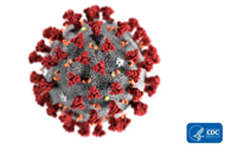Thanks to funding from the SECU Foundation, Library Services has added a new, current collection of 200 eBooks to the AHEC Digital Library that will be accessible by all ADL members.
These eBooks provide clinical and research support along with evidence-based recommendations to equip providers with what they need to deliver care and successfully navigate changes in healthcare environments. The new resources include:
As the health care workforce responds to COVID-19, they face challenges to both coping in the moment and ongoing mental health.
To support this process, the AHEC Digital Library presents a collection of resources geared towards health care worker mental health during COVID-19.
- Resources to Support the Health and Well-Being of Clinicians During the COVID-19 Outbreak
- Coping with sickness and stress
- Coronavirus and Mental Health: Taking Care of Ourselves During Infectious Disease Outbreaks
- Positive Psychology in Times of Crisis
- Suicides of two health care workers hint at the Covid-19 mental health crisis to come
See more mental health resources for clinical staff...
ADL News (more ...)
Highlighted Resource for May 15, 2024:
Behavioral Health Access and Workforce Competence for Integrated Care:
Highlighting Interprofessional Initiatives from Two North Carolina Social Work Programs
Updated: 2024-05-10 @ 08:31:17
Integrating behavioral health care and primary care can greatly expand access to mental health care, which is critical for North Carolina's current mental health professional shortage.
A recent NC Medical Journal article discusses two models for interprofessional behavioral health care teams that include both primary care physicians and social workers, explaining what has worked at ECU's School of Social Work and UNC-Charlotte's School of Nursing.
To learn more, check out the ADL's Highlighted Article for May 15:
Behavioral Health Access and Workforce Competence for Integrated Care: Highlighting Interprofessional Initiatives from Two North Carolina Social Work Programs
For more on interprofessional care, read the rest of the NC Medical Journal's latest issue:
Interprofessional Care and Practice in North Carolina (Vol. 85, Issue 3, 2024)
Highlighted Resource for May 1, 2024:
AI-Generated Draft Replies Integrated Into Health Records
Updated: 2024-04-30 @ 08:26:40
As the healthcare community grapples with the question of how to use generative AI, two recent JAMA studies have tested methods of using AI tools to draft EHR information.
These studies allow physicians to use AI-generated drafts as starting points for patient message responses, evaluating the impact on response compassion, physician burnout, and time saved.
To learn more, check out the ADL's May 1 Highlighted Articles:
AI-Generated Draft Replies Integrated Into Health Records and Physicians’ Electronic Communication
Artificial Intelligence–Generated Draft Replies to Patient Inbox Messages




